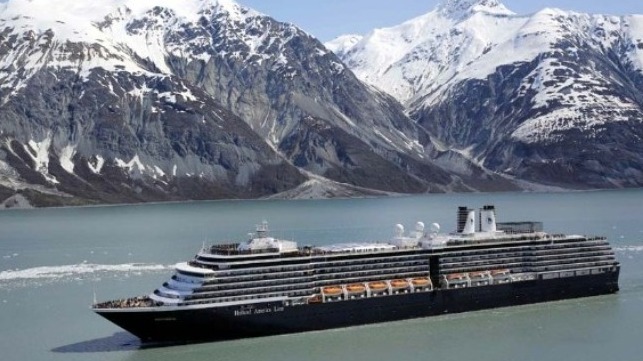New Bill Would Exempt Alaska Cruises From U.S. Cabotage Laws

After creating an exemption from the U.S. cabotage regulations in 2021 for large cruise ships sailing to Alaska, Senator Lisa Murkowski is now seeking to extend the exemption for large cruise ships sailing to her state. Two weeks after announcing her intentions that Alaska tourism should never again be controlled by Canada, the senator introduced new legislation, the Cruising for Alaska’s Workforce Act, to provide a permanent exemption from the Passenger Vessel Services Act for large cruise ships sailing between any U.S. state and Alaska.
“While the PVSA still serves its purpose in the Lower 48, it unintentionally put many Alaskan businesses at the mercy of the Canadian government when Canada closed its borders, including ports. The inability for cruises to travel to Alaska nearly wiped out our economies in Southeast—communities like Skagway for example saw an 80 percent drop in business revenues,” said Senator Murkowski. “My new bill guarantees the PVSA will not intrude on Alaska’s tourism economy, while also ensuring foreign-built ships do not compete with U.S.-built ships. This legislation is good news for every Alaskan whose livelihood relies on tourism.”
The Senator’s efforts in the spring were widely supported including by the U.S. and small cruise ship industry recognizing the importance of tourism to Alaska’s economy. Before the pandemic, well over one million cruise passengers visited Alaska and the market was enjoying a resurgence with many of the large cruise lines deploying their newest and largest ships into the Alaska market.
The Passenger Vessel Services Act, which dates to 1886, requires foreign-registered ships carrying U.S. citizens to visit a foreign port when transporting Americans between two U.S. ports. Prior to 2020, the major cruise lines met the cabotage restrictions by either departing from Vancouver in Canada or visiting Canadian ports including Vancouver and Victoria during their north and southbound trips to Alaska.
In 2020 and again in 2021, Canada closed its ports to all cruise ships but the 2021 Alaska cruise season was saved with the temporary waiver of the requirement to visit a foreign port. When the waiver was announced many Canadian businesses and ports on the West Coast feared the United States might move to make it permanent and called on the Canadian federal government to take actions to prevent the loss of the cruise industry.

that matters most
Get the latest maritime news delivered to your inbox daily.
The proposed bill seeks to head off opposition from powerful lobbies in the United States. First, the bill stipulates that the exemption would only be for cruise ships carrying 1,000 or more passengers. The small ship U.S. cruise industry supported the temporary exemption but is less likely to support the extension creating additional competition once Canadian ports reopen.
Anticipating opposition from the U.S. shipbuilding industry, the Senator highlighted “this waiver will end once there is a U.S.-built ship that carries more than 1,000 passengers.” The draft legislation includes a provision that would end the waiver within 270 days when “a United States passenger vessel qualified to engage in the coastwise trade is offering or advertising passenger service between a port in the State of Alaska and another port in the United States, directly or by way of a foreign port.” The exemption, however, could be restored if the U.S. ship stopped sailing to Alaska.
